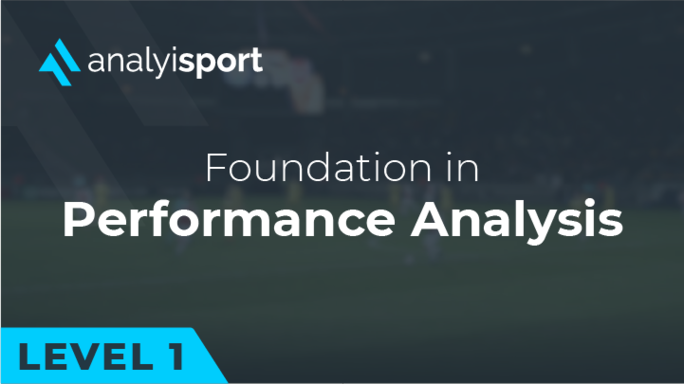What is FIFA?
What is FIFA?
FIFA which stands for “Federation Internationale de Football Association” is the international governing body of association football.
Founded in 1904, the initial founding members were the national associations of Belgium, Denmark, France, Netherlands, Spain, Sweden, Switzerland and Germany.
The main role of FIFA was to run and organise elite competition in world football, the main product of this being the FIFA World cup.
FIFA- The game of Football:
The wonderful game of Football has brought together all corners of the world and has had a great impact across the globe.
By adding elite competition at an international level, and allowing people to represent their country, it has brought communities together to support their country and feel proud of what they can achieve.
FIFA World Cup:
Since FIFA being founded, several international competitions have been organised outside of the Olympics, this was the first step for arranging international competition in football and these first few attempts were deemed “unsuccessful”.
However in 1930, the first ever FIFA World Cup took place in Uruguay. Conversations and planning had taken place several years prior to the 1930 FIFA World Cup, and the success of FIFA run Olympic football in the 1934 and 1928 Olympic games meant that the FIFA World Cup could be formed.
The 1930 World Cup was the first and only without qualification needed. Only 13 countries participated including seven from South America, four from Europe and two from North America. The original plan was to have a 16 team knockout tournament, however as there were only 13 teams and they were unable to reach the 16 team number, there was no qualification needed.
The World Cup we see today is extremely different, held every four years. The World Cup involves over 200 countries entering for qualification since the 2010 World Cup held in South Africa (205 entered for qualification).
The qualification format is currently held over the three years where a tournament is not scheduled e.g. the 2022 World Cup qualification phase was held over the years 2019, 2020 and 2021. This is a group format qualification where the normal three points are awarded for a win, one point for a draw and zero points for a loss.
32 teams qualify for the tournament through the qualification phase. Then the 32 teams who have qualified compete in the FIFA World Cup starting in eight groups of four teams where they gain three points for a win, one for a draw and zero for a loss. The top two teams in each group progress to the round of 16, which then becomes a knockout format leading to the FIFA World Cup final.
Other Tournaments:
Other competitions run by FIFA include FIFA World Series, FIFA Futsal World Cup,FIFA Women’s World Cup, Men’s Olympic Football Tournaments (U23 and U20), FIFA Club World Cup, FIFA Youth Cup and the FIFAe World Cup (in the world of eSports), and many more.
In 2023, the ninth edition of the Women’s World Cup will take place in Australia and New Zealand.
The first unofficial editions of the Women’s World Cup took place in 1970 and 1971. FIFA approved the creation of the official FIFA Women’s World Cup in 1991, which took place in China. 12 teams competed in this first rendition of the competition, the United States reigning victorious.
The other significant tournament that FIFA has established is the Club World Cup. This competition was first held in the year 2000, named the FIFA Club World Championship. This was held in Brazil, this was held alongside the Intercontinental Cup which saw the winners of the UEFA Champions League and the Copa Libertadores face off. This was later merged into one competition and renamed the FIFA Club World Cup in 2006.
The format of this competition starts with the Play-off round which sees the winners of the OFC Champions League face the Host nations national league champions. This then leads into the Quarter final round which has the winners of the AFC Champions League, the winners of the CONCACAF Champions League, the winners of the CAF Champions League and the winners of the play-off round game.
The semi final round is then held between the two teams who won the quarter final round games, and the newly introduced winners of the Copa Libertadores and the winners of the UEFA Champions League. Finally the last game is the final and is held between the two winners of the semi-final round games.
2023 will hold the 20th edition of the Club World Cup, and this will be held in Saudi Arabia.
Future plans for FIFA:
The future plans for FIFA look set to be around data and the football language.
Arsene Wenger has been appointed as Chief of Global Football Development and his vision is “To improve football understanding and experience by creating new Enhanced Football Intelligence (EFI) through the combination of technical expert observation and football data analytics”.
The FIFA Football Language is the “blueprint” for how FIFA wants to analyse football moving forward according to the FIFA Training Centre. This has been developed by experts in analysis and data scientists to simply justify actions a player is making while on the pitch both in and out of possession.
The idea of this is to create a universal language and understanding for how the game can be analysed, allowing them to dive into more specific questions and improve the overall understanding as to why certain events are important in the game.
FIFA also wants to redevelop the FIFA Club World Cup in 2025, adopting a 32 team format, which would take place every four years similar to the FIFA Men’s and Women’s World Cups.
This change will become active after the 2023 edition (the 20th edition) of the Club World Cup being held in Saudi Arabia.
This new format would include 12 clubs from UEFA, six clubs from CONMEBOL, then four teams from each of the Concacaf, AFC and CAF umbrella’s, one team from OFC and one team from the host country.
These teams would be determined by the winners of the various Champions league contests from each of the national associations. The other slots would be assigned to the highest ranked teams between 2021-2024 within their national association designated slots.
eSports Development
FIFA wants to continue to grow in the eSports industry and expand within this field.
The FIFAe World Cup is an eSports tournament held by FIFA and its presenting partner EA Sports. The first rendition of this was in 2004 taking place in Switzerland, however over the years the growth of eSports has been significant. In 2015 (the 12th edition of this tournament), 2.3 million players attempted to qualify for the Grand Final taking place in New York City.
This tournament is currently held every year (although not 2020 and 2021 due to the COVID pandemic), and FIFA plan to continue the growth of their eSports events, making them bigger and better than ever.
Related Courses:
Share this article
Our Learning Pathways
AnalyiSport is for everyone who is passionate about analysis in football. Where are you in your development journey?
Become a Football Scout
As more clubs than ever look to build data into their recruitment process, an understanding of recruitment analysis is your ticket to success in the game.
Related Articles
Our team provides news and insights from the cutting edge of football analysis.







